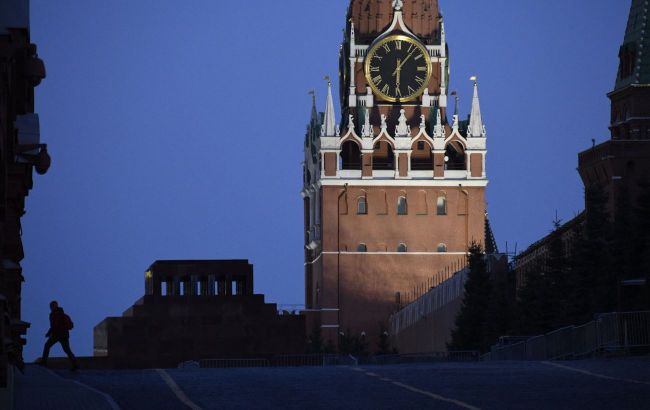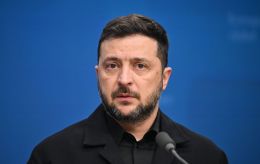Kremlin moves to impose sanctions on Ukraine's top government officials
 Illustrative photo: The Kremlin moves to impose sanctions on Ukraine (Getty Images)
Illustrative photo: The Kremlin moves to impose sanctions on Ukraine (Getty Images)
The Russian government has decided to "punish" Ukrainian high-ranking officials by imposing sanctions against them. According to the Kremlin, the sanctions targeting Ukrainian officials will have an economic character.
Those included in the Russian sanctions list are:
- Prime Minister Yulia Svyrydenko;
- Minister of Finance Sergii Marchenko;
- Minister of Economy, Environment, and Agriculture Oleksii Sobolev;
- Advisor to the Minister of Defense Oleksandr Kubrakov;
- Former Minister of Justice Denis Malyuska;
- Former Minister of the Cabinet of Ministers Oleh Nemchinov.
Also on the list are: Director General at Government Office for Coordination on European and Euro-Atlantic Integration Oleksandr Ilkov; Former Deputy Head of the Office of the President of Ukraine Rostyslav Shurma; Director of the Reforms Delivery Office of the Cabinet of Ministers Tetyana Kovtun; and Government Commissioner for Gender Equality Policy Kateryna Levchenko.
All individuals listed in the Russian sanctions list are banned from entering Russia. Any property or bank accounts they hold in Russia (if any) will be seized and nationalized — in simpler terms, stolen.
Meanwhile, on October 31, President Volodymyr Zelenskyy signed two decrees activating decisions of the National Security and Defense Council regarding sanctions against pro-Russian propagandists and companies supporting Russia’s defense industry.
Earlier, in September, Ukraine introduced new personal sanctions against individuals and companies supporting Russia's military-industrial complex, shadow fleet, and energy sector. That same month, Zelenskyy signed two decrees imposing sanctions on foreign sponsors of Russia's war in Ukraine, including Chinese companies.
Separately, Russia faced a major sanctions blow from the United States on October 22. The two largest Russian oil companies, Rosneft and Lukoil, and their subsidiaries in Russia were targeted. As a result, both companies’ market capitalization collapsed, and they were forced to sell foreign assets.

